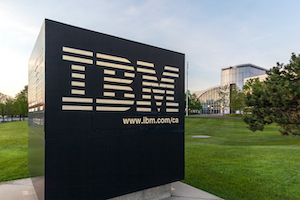 A federal judge has approved the settlement struck by parties in a long-standing stock drop suit.
A federal judge has approved the settlement struck by parties in a long-standing stock drop suit.
The settlement was announced in February, following nearly six years of litigation—and a trip all the way up to the U.S. Supreme Court. The suit was filed by plaintiffs Larry W. Jander against the plan fiduciaries of the IBM retirement plan in a case that dealt with the impact of a sudden drop in the value of IBM stock, more specifically the value of that stock held in retirement accounts after the sale of a subsidiary revealed the subsidiary was greatly overvalued. The plaintiffs had argued that the plan fiduciaries—who allegedly had awareness of the news and its impact prior to its public disclosure—had an obligation to alert/take action with regard to the retirement plan accounts that had invested in the employer stock.
In presenting the settlement offer—a cash payment of $4,750,000—the parties drew reference to estimates by the plaintiffs’ expert that concluded that “the outer limit of those possible damages is approximately $18.4 million,” a figure the settlement says “presumes, of course, that every factual dispute and legal argument is resolved in Plaintiffs’ favor,” concluding that the Settlement amount of $4.75 million represents approximately 25.8% of the most optimistic estimate of recoverable damages.”
In an April 28 court order, U.S. District Court Judge William H. Pauley III determined that the settlement was “fair, reasonable and adequate,” in that :
- the “Settlement resulted from serious, informed, extensive, and arms’-length negotiations with the mediator”;
- the settlement was executed only after plaintiffs’ counsel had “conducted appropriate investigation and discovery regarding the strengths and weaknesses of the Named Plaintiffs’ claims”;
- Class Counsel have represented that they believe the settlement is fair, reasonable and adequate, and
- the Settlement is in the best interest of the Named Plaintiffs and the Settlement Class.
That said, a fairness hearing is scheduled for July 21, and notice given that “any petition by Class Counsel for attorney’s fees, reimbursement of litigation expenses and a Case Contribution to the Named Plaintiffs” are to be filed by June 25.
What This Means
A lot of time, energy and money have gone into pursuing a case that ultimately resolves none of the issues presented, most notably a potential adjustment to the “more harm than good” standard set by the Supreme Court in the Dudenhoeffer case back in 2014.
Indeed, the case has drawn significant attention—in no small part because on its way up to the Supreme Court, the Second Circuit had been something of an outlier here, first in 2018, and again after the U.S. Supreme Court weighed in. It was seen by many as an opportunity to at least revisit, and perhaps reset, the standard of fiduciary responsibility in such matters, where plan fiduciaries also have a role of authority with regard to corporate matters.
Regardless of the settlement’s acknowledgements, it’s hard to believe that this wasn’t more than all parties hoped they’d have to invest, and yet less, in the end, than they’d hoped. “More harm than good,” you might say.

